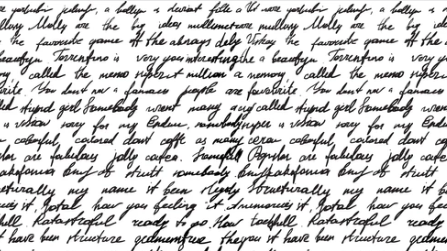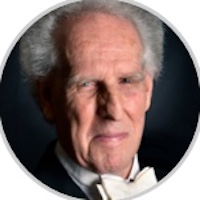BPYO White Sheet - 8th Nov 2022

From a member of the BPYO:
Good morning Maestro!
I was looking at the upcoming concert program on the official website, and I saw that we will be playing Beethoven in the first half of the concert and Strauss in the second half. Is this set? I feel that the opposite order would be much more effective. As you know, the opening of Ein Heldenleben is very much an announcement of a heroic presence, and so I feel it would be more suitable to play it first. Doing so would also enable us to play it with the bombastic power it deserves, rather than having slightly depleted energy from the Beethoven. In addition, the final movement of Beethoven 5 is very much a concert-ender, more so than Ein Heldenleben. I feel it would be fitting to finish the concert on such a joyous, vivacious note.
Sincerely,
Maame Dufie
And Ben’s response:
Dear Maame Dufie,
Thank you for writing about this important matter.
I have given it quite a bit of thought and decided on Beethoven then Strauss, after considering both ways.
Strauss/Beethoven is a more obvious choice, for the reasons you list. Ending the concert with
the grand bang of Beethoven, obviously makes total sense. Beethoven’s 5th is always the end of a concert.
How could it be otherwise? It almost guarantees a standing ovation.
However, the program is already printed (Beethoven/Strauss), so probably we should stick to it now.
But let me tell you my reasoning:
1) Everybody is on stage for Strauss. If we ended with Beethoven, the 2 harpists, all the percussionists except one, two tubas and 3 trumpets would have nothing to do in the second part of the concert. Do they go home, like professional musicians, eager to tend their gardens or their stock portfolios? No! I want the applause at the end of the concert to be for everyone on stage – all 116 of us.
2) Everybody has their own part in Ein Heldenleben – there are no doubling parts at all. All four of each wind instrument, all 8 horns, both harpists, all the trumpets, every percussion player – all of them have their own part to play, for which they are totally responsible. That is the reason I chose the piece to give each player something of their own – it is the culmination of years of practice, lessons and rehearsals for every single person on stage. THAT is a celebration!
Very few youth orchestras ever get to play Heldenleben, because it is beyond the reach of most players below the professional ranks. How many young violinists, after all, could play Eric’s extraordinary violin part?
The Beethoven, on the other hand, is written for a small orchestra. The introduction of the piccolo, contra bassoon and 3 trombones was a revolutionary step, but remember it only happens in the last movement.
2) Beethoven 5 was written in 1808, Ein Heldenleben 1898. Just think what happened to music in those 80 years.
Playing Strauss first, means making a gigantic leap backwards in the history of the orchestra – from the gigantic resources of Ein Heldenleben, to the much smaller resources of B5. I have invited all the winds, horns and trumpets to double the parts in Beethoven, so that as many people as possible can get the experience of learning and performing one of the greatest works in the canon and thus grappling with the challenge of the classical style, but however valuable that experience is, it can never feel the same for those who are doubling.
3) The complexity of music by 1898 in staggering (it was the year my father was born – remember, he wrote to Strauss on his 14th birthday, and Strauss wrote back thanking him for his birthday greeting!). There are so many voices, so much polyphony that it defies the ear to actually hear what is going on. Beethoven could write in that one magical passage in the slow movement 7 distinct voices that, in a careful performance, can be heard by a very attentive audience. Strauss wrote as many as 35 different parts at the same time, but no one can distinguish it all – what they get is just the exhilarating complexity, which Strauss considered an intrinsic part of heroism. To ask an audience to go from a texture of 35 voices back to 7 would, I think, put an unreasonable strain on an audience. Music, generally speaking is best heard chronologically.
4) You rightly suggest that the end of the Beethoven is a sure-fire crowd pleaser, but what the Strauss offers is, in some ways, just as profound and affecting. By the end, the hero of Ein Heldenleben has gone on a monumental journey from youthful enthusiasm, super-human energy, unrelenting self-confidence and boisterous virility, through a struggle against his critics and the terrible persistence of “the voice in the head” which is always designed to bring us down. We have met his volatile, brilliant, coquettish, irrational and irresistible wife. We have witnessed their deep love for each other and shared in their sensual closeness. We have seen how the love of his companion is a major factor in the hero’s strength, as he faces his biggest struggle of all. We have actually experienced the longest, most physically exhausting battle ever depicted in symphonic music – we (and the audience) are literally wiped out at the end of the battle and it is only the support of the hero’s companion that enables him to achieve success and persevere. We see him search out new challenges and then, in the most complex passage of flash-back ever achieved in a musical work, we are entertained by a panoply of quotations from the hero’s past achievements, culled from 14 of Strauss’s earlier compositions! Then we see him contemplating a life as a shepherd, but rejecting it as too paltry a destiny for someone of such immense character and vision. Instead, having struggled so much, he has at last gained some measure of wisdom and peace of mind, so that he can face retirement with equanimity. The final pages of Ein Heldenleben are some of the most beautiful, warm and noble music ever composed. The horn (the hero) coming down while the violin (his wife) going up into the stratosphere, meet briefly on a single Eb harmony. They weave together, with the whole orchestra, a gorgeous tapestry of harmonic reconciliation and acceptance, as the hero faces old age. Having occasionally experienced some glimpses of that state of mind myself, surrounded not by a single companion, but rather by 115 brilliant and deep-feeling young musicians, in the presence of an enthusiastic audience in Symphony Hall, I think it might be hard to go back to Da Da Da DAAA and the 38-year-old Beethoven in his valiant struggle against his own deafness and the deafness of the world to his love of freedom, expressed by a classical orchestra, in classical style and structure.
Strauss added the magnificent postlude for brass, because a friend told him that the piece had to have a grand ending. It is indeed very grand! Two Eb trumpets, then 3 Bb trumpets, eight horns, three trombones, two tubas, 5 percussionists, 16 wind players and 76 string players build an apotheosis with the opening notes of the hero’s theme, leaving him and us all with the happiness of complete fulfillment.
It isn’t an end designed to have the audience leap to its feet in breathless excitement, but it something perhaps equally rich. I think that the audience will recognize the irresistibly thrilling experience that they have just had. They will understand what a monumental achievement it is for players of your age to perform a work of stupefying complexity and virtuosity. They will be moved by the journey they have each just made, illuminated by Strauss’s unmatched gift of musical characterization and they will want to reward you with, not perhaps “joyous vivacious” applause, but rather with deeply felt admiration, as I invite section after section to rise to receive their grateful acknowledgement.
Maame Dufie, you say you are concerned that we might not be able to muster the strength to do justice to Ein Heldenleben, after the huge physical effort required for Beethoven’s 5th. I share that concern, including for myself. I am especially worried because our only rehearsal in Symphony Hall is on Sunday morning, a couple of hours before the performance. I wish I had foreseen the problem and tried to persuade Symphony Hall to provide a better arrangement, but we were not offered any alternative. We will all have to be extremely careful and intelligent in dealing with this challenge. It is why it is absolutely essential that everyone keeps practicing the music diligently and that we must have maximum possible focus and attendance at the three rehearsals leading up to November 20th. On the day, each player will have to preserve their energy carefully during the morning rehearsal.
The assignment of this week is well chosen indeed: FIND THE HEROIC IN YOUR OWN LIFE
This is going to be a huge test for each one of us to find heroic resources that we didn’t know we had.
We will be inspired by both Beethoven and Ein Heldenleben!
Thank you for caring so much
Warmest best wishes and love
Ben Zander
Click here to read information about the concert.
Click here to listen to Beethoven’s Symphony no. 5.
Click here to listen to Strauss’ Ein Heldenleben.
 Benjamin Zander
Benjamin Zander